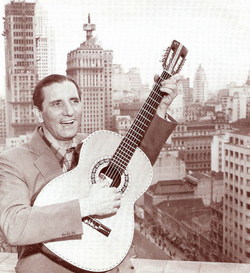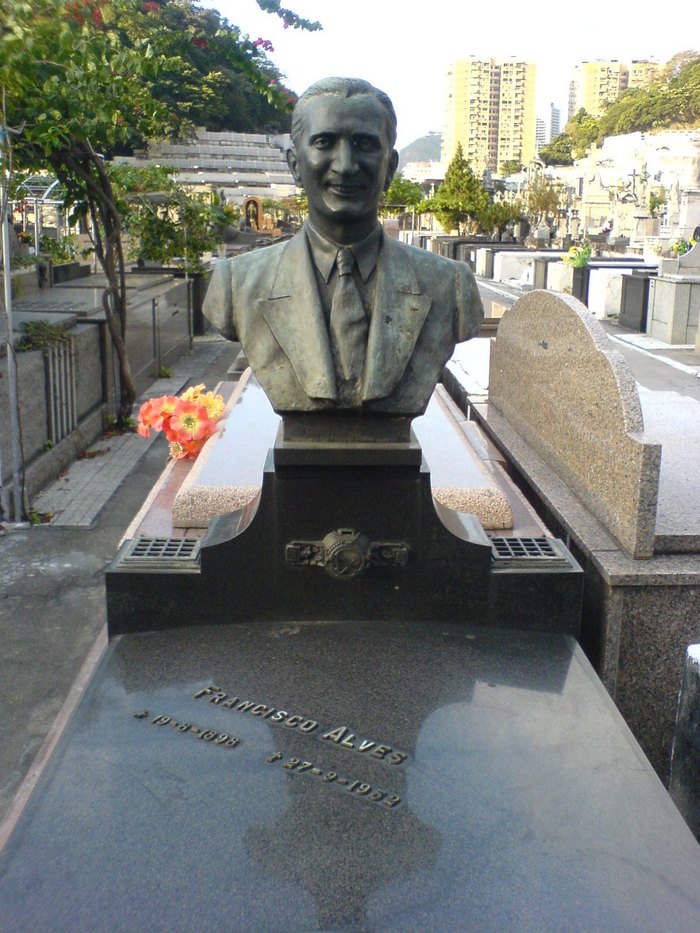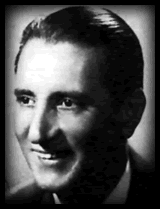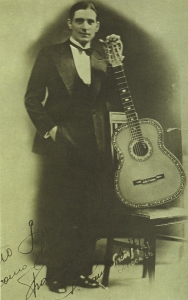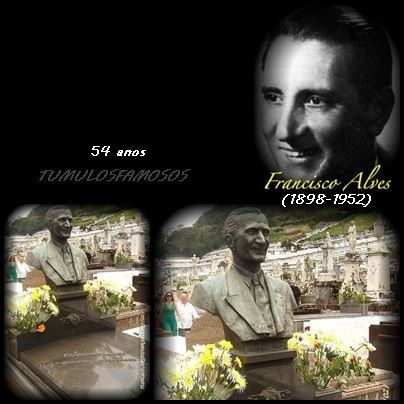He began his career in 1918 and his first musical hit was the carnival march "O Pé de Anjo" (Sinhô).
The loud and clean voice became Alves really popular in radio days and known as "O Rei Da Voz" (The King of Voice).
His death in a car crash was a schock for his inumerous fans and still today he is remembered as one of the greatest names of the brazilian music.
Thousands of people went to his funeral and there is even a suicide note reported in cause of his death.
His major hits were the waltz "Boa Noite, Amor" (J.M. Abreu/ F. Matoso), "É Bom Parar" (Rubens Soares), "Foi Ela" (Ary Barroso), "A Mulher que Ficou na Taça" (com Orestes Barbosa), "Serra da Boa Esperança" (Lamartine Babo), "Se Você Jurar" (Ismael Silva), "Fita Amarela" (Noel Rosa), "Aquarela do Brasil" (Ary Barroso), "Onde o Céu Azul É Mais Azul" (Alcyr Pires Vermelho/ João de Barro/ Alberto Ribeiro), "A Voz do Violão" (with Horácio Campos), "Malandrinha" (Freire Júnior), "Caminhemos" (Herivelto Martins) and "Cadeira Vazia" (Lupicínio Rodrigues/ Alcides Gonçalves).
He began his career in 1918 and his first musical hit was the carnival march "O Pé de Anjo" (Sinhô).
The loud and clean voice became Alves really popular in radio days and known as "O Rei Da Voz" (The King of Voice).
His death in a car crash was a schock for his inumerous fans and still today he is remembered as one of the greatest names of the brazilian music.
Thousands of people went to his funeral and there is even a suicide note reported in cause of his death.
His major hits were the waltz "Boa Noite, Amor" (J.M. Abreu/ F. Matoso), "É Bom Parar" (Rubens Soares), "Foi Ela" (Ary Barroso), "A Mulher que Ficou na Taça" (com Orestes Barbosa), "Serra da Boa Esperança" (Lamartine Babo), "Se Você Jurar" (Ismael Silva), "Fita Amarela" (Noel Rosa), "Aquarela do Brasil" (Ary Barroso), "Onde o Céu Azul É Mais Azul" (Alcyr Pires Vermelho/ João de Barro/ Alberto Ribeiro), "A Voz do Violão" (with Horácio Campos), "Malandrinha" (Freire Júnior), "Caminhemos" (Herivelto Martins) and "Cadeira Vazia" (Lupicínio Rodrigues/ Alcides Gonçalves).
Sponsored by Ancestry
Advertisement
Advertisement
